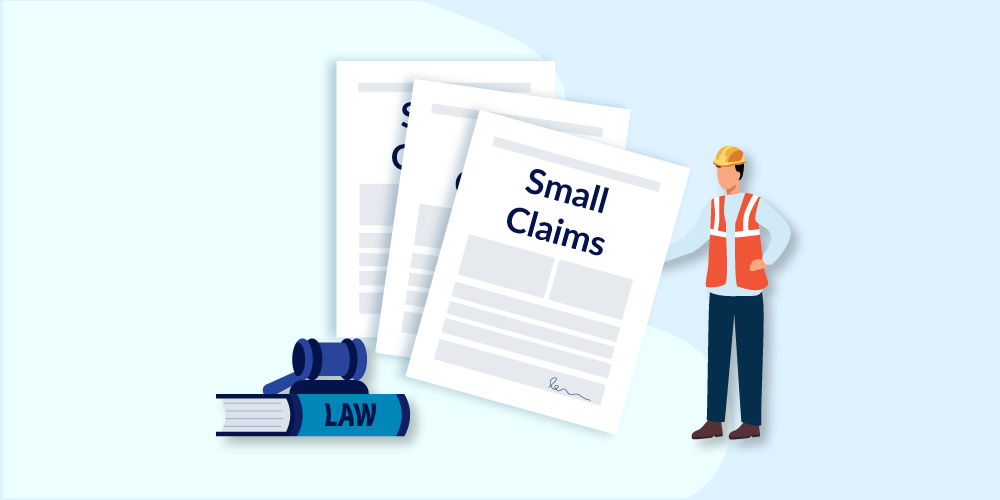8.00 - 9.00
Opening Hour Mon - Fri

The real reason why the Small Claims Court was created was to streamline business operations in Kenya for Businesses and Companies as opposed to settling disputes between individuals. It was meant to be an accessible forum for resolving financial disputes quickly and efficiently for businesses. This legal mechanism was envisioned as a commercial vehicle to aid businesses and companies in settling their disputes in a swift manner and allowing them to return to their primary operations without prolonged legal distractions. While the Small Claims Court is accessible to both individuals and businesses, it is apparent that the system is inherently more beneficial to businesses, particularly during the execution stage after judgment.
Commercial Vehicles for Business Efficiency
Small Claims Courts serve as crucial commercial vehicles for various business entities, including large corporations like banks and hospitals, as well as medium and small enterprises such as microfinance institutions, wholesalers, hardware stores, and even small retail shops and grocery stores. The design of these courts aims to facilitate quicker resolutions, helping businesses to minimize downtime and maintain operational continuity. However, despite the court’s accessibility to individuals, businesses are better equipped to utilize these courts effectively, especially during the post-judgment phase.
The Execution Stage: A Critical Challenge
Securing a favourable judgment in court is often only half the battle in litigation. The real challenge lies in executing that judgment to satisfy the decretal amount (amount awarded during judgment)—ensuring that the judgment debtor actually pays the sums awarded. This stage is fraught with difficulties and complexities, particularly when the debtor is an individual.
Why Businesses Have an Edge over Individuals
There are several reasons why it is generally easier for businesses to satisfy decretal amounts awarded in judgments compared to individuals:
Businesses typically have tangible, traceable assets that are easier to identify and seize. For instance, a company might own inventory, equipment, real estate, or other valuable assets that can be attached and sold by the auctioneers to satisfy the judgment. In contrast, individuals may not possess significant assets, or their assets may be less visible and harder to locate.
Businesses operate from known, fixed locations, making it easier for decree holders to locate and attach movable properties. This is in stark contrast to individuals who might not have a permanent address, complicating the process of locating and seizing their assets. You have to know where they stay before you can call in auctioneers on them. The costs associated with locating them can be more than what was awarded to you in court.
Business bank accounts are often publicly known and can be garnished to satisfy a judgment. This transparency makes it easier to access funds directly from the business’s financial accounts. Individuals, however, may have multiple accounts, some of which may be hidden or difficult to trace, further complicating garnishment efforts.
The court can order attachment of the judgment debtor’s accounts, and the sums found in the account be deducted automatically to satisfy the decretal amount. The catch is that you must first identify the account numbers and plead directly with the court to give an order to garnish the account. You can’t simply state that the Judgment Debtor has an account with Equity Bank.
Businesses operate on structured budgets and business models, which can facilitate the settlement of decretal amounts. A business might have contingency funds, insurance, or other financial mechanisms in place to handle such liabilities. On the other hand, individuals typically rely on salaries or wages, which may not be sufficient to cover large judgments, and they lack the financial flexibility that businesses enjoy. Yes, you can garnish an individual's salary to satisfy the decretal award, but the amount is limited to a lower percentage of their net income, of course, the court will factor in the basic needs of the family before deciding on a proper cut.
Other Challenges in Executing Judgments Against Individuals
Executing judgments against individuals presents numerous challenges that do not typically affect businesses:
- Asset Concealment.
Individuals can more easily hide or transfer assets to evade judgment enforcement. They might use tactics such as transferring ownership to family members or moving funds to untraceable accounts.
- Legal Protections:
Individuals benefit from various legal protections and exemptions that shield their assets. For instance, a party can invoke homestead exemptions that protect a person's primary residence from being seized to satisfy a judgment. He might argue that the household items belong to his wife.
- Personal Bankruptcy:
Individuals can declare bankruptcy, which can discharge many types of judgments or significantly reduce the amount recoverable by decree holders. This process provides a legal shield against complete asset seizure.
Conclusion
The Small Claims Court system, while theoretically designed to serve both individuals and businesses, inherently favours the businesses in the execution phase. When businesses fail to satisfy a judgment, the decree holder can often rely on a clearer and more structured path to asset seizure and liquidation. In contrast, pursuing an individual debtor can result in prolonged legal battles with little assurance of asset recovery, leading to dormant judgments that remain unfulfilled.
Businesses possess more traceable assets, operate from fixed locations, and have public bank accounts and structured financial models, all of which facilitate easier and quicker judgment enforcement. Conversely, individuals present numerous challenges, from asset concealment and legal protections to the possibility of bankruptcy, making the execution of judgments against them significantly more complex and less assured.
Disclaimer: This is not legal advice and should not be relied upon as such.
Contact us for further details.
W.J. Maxwell & Associates Advocates
email info@wjmaxwell.co.ke || or call/text/whatsapp 0733 61 09 61